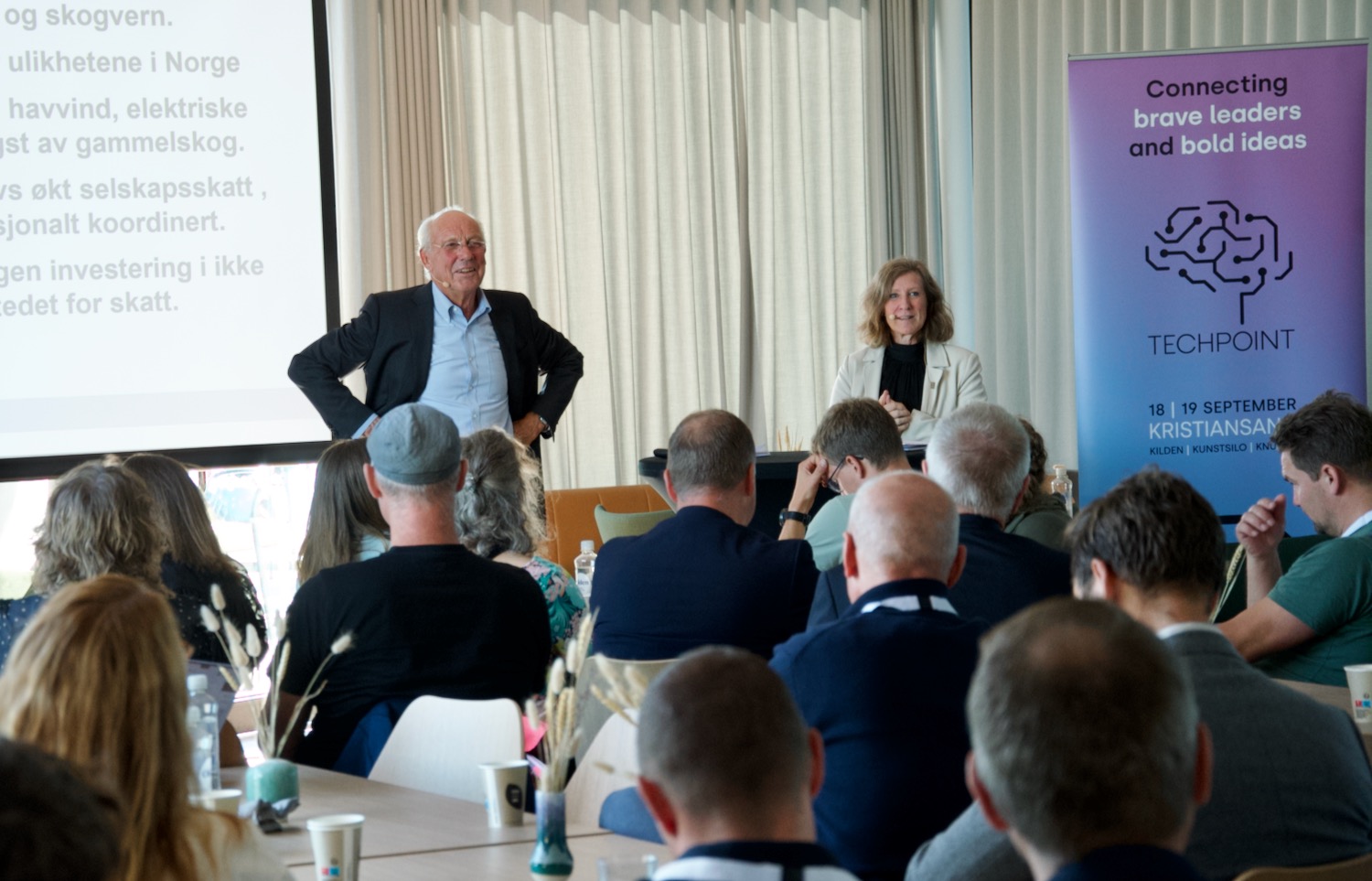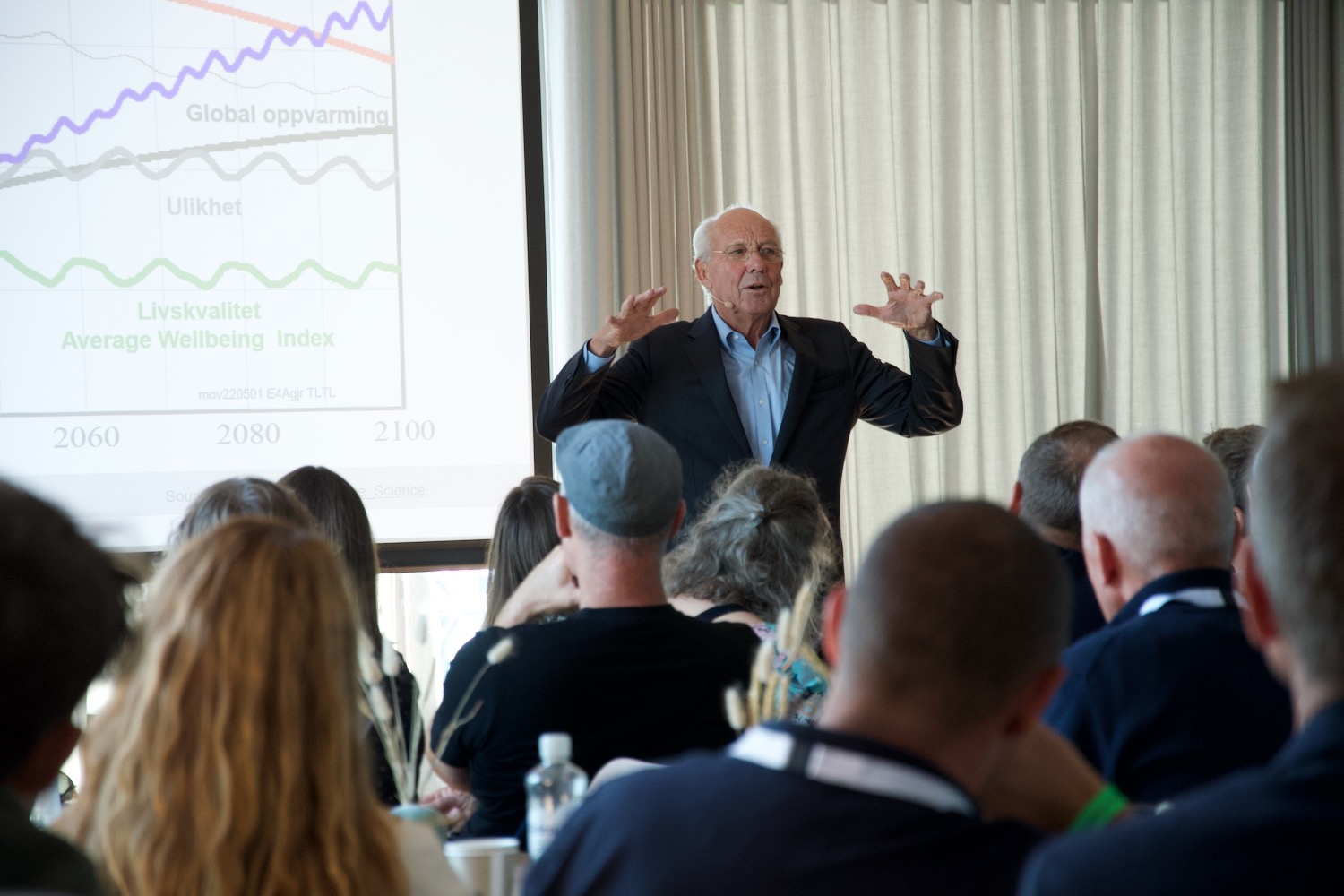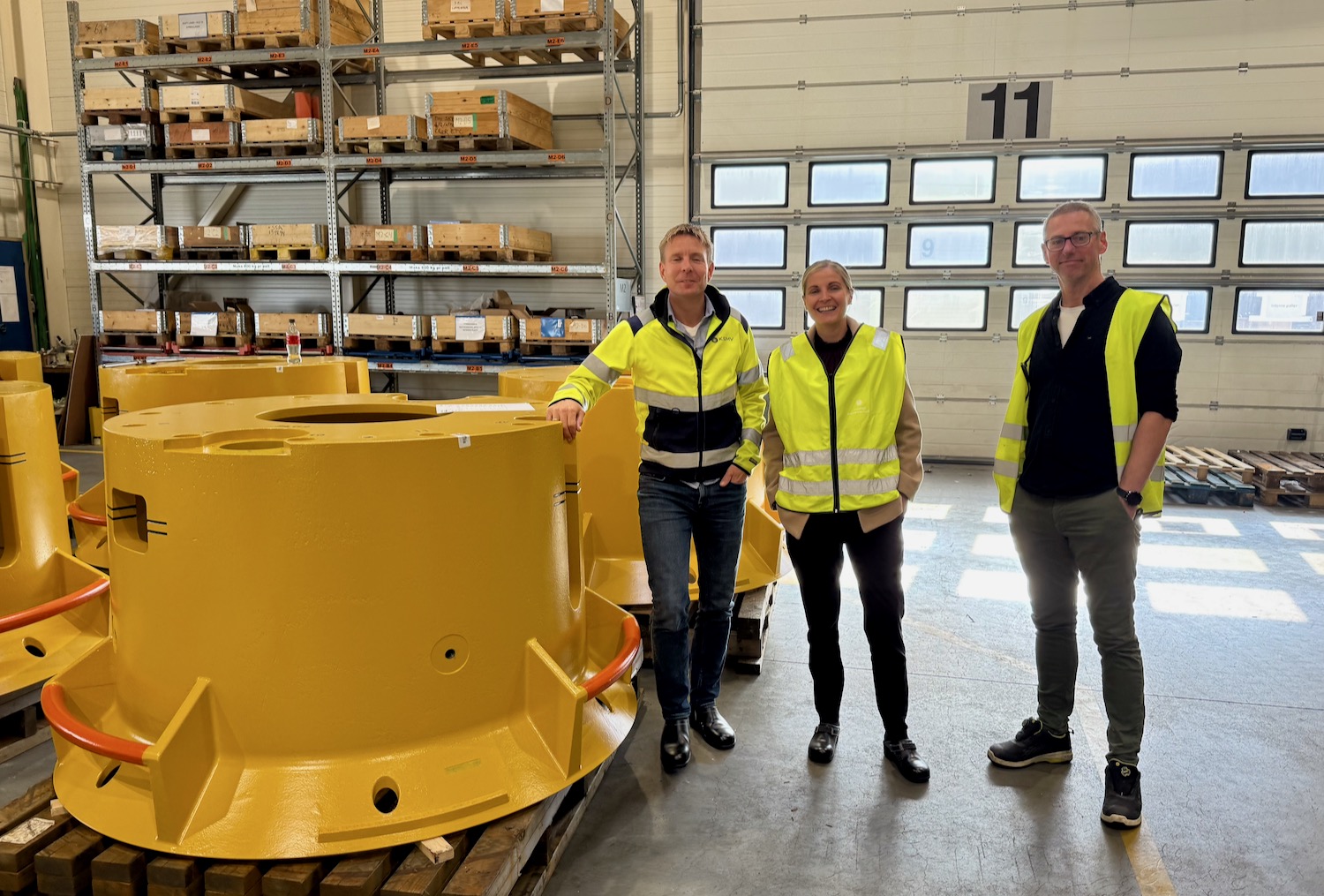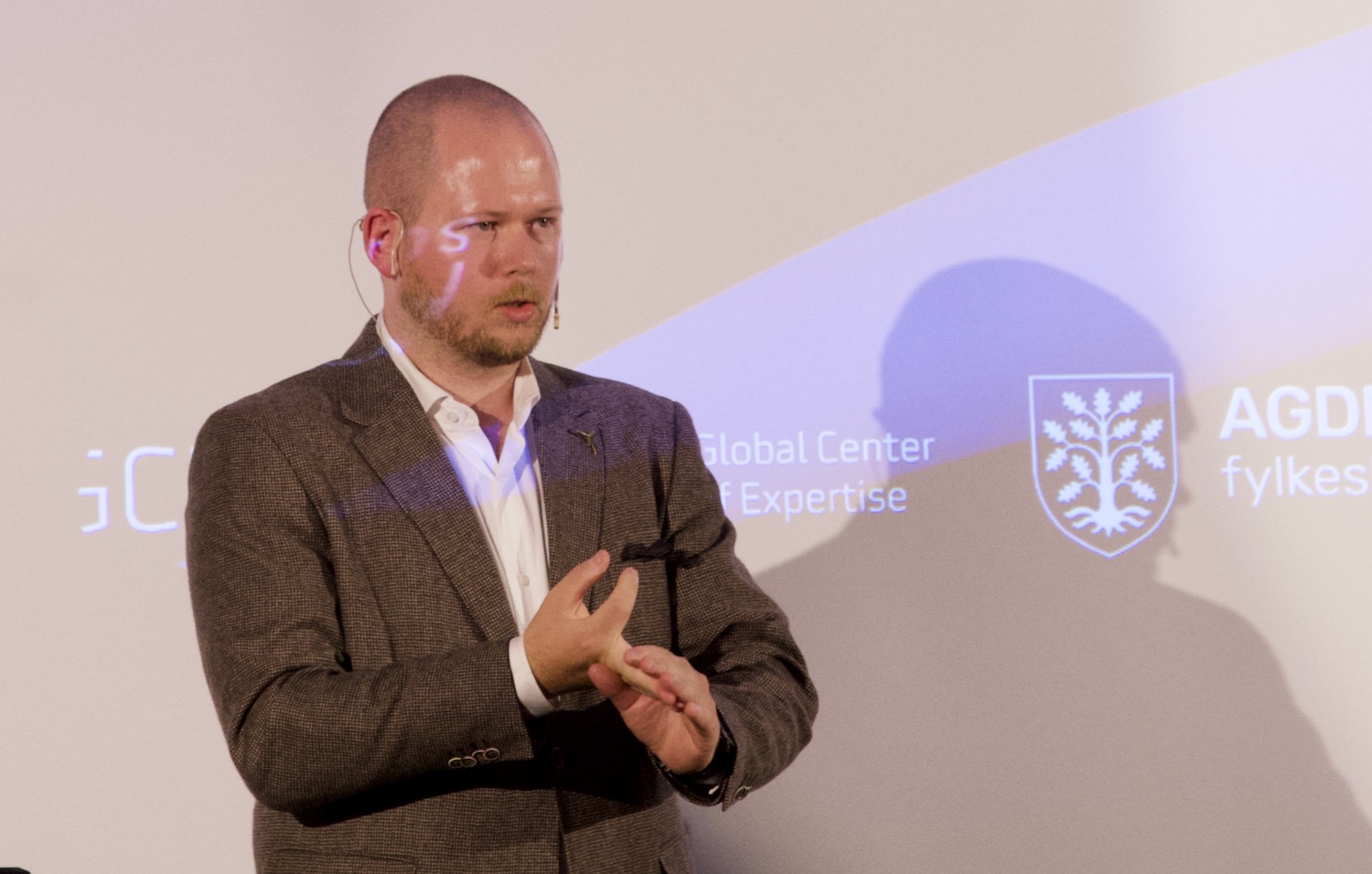This according to Jørgen Randers, a professor emeritus of climate strategy and former head of the Norwegian committee on low emissions. Randers was the keynote speaker at the Techpoint Global Impact conference in Kristiansand Thursday.
Immediately after Randers was introduced as an expert on model-based future studies, scenario analysis, sustainability, and more – he set the tone for his talk to the technology savvy group in the room:
“Your technology will fail us. And my political solutions will not be implemented. So, here we go…”
Jørgen Randers smiled and his audience laughed.
The Global Impact conference was launched in 2021 with the ambitious sub-title “Technology that saves the world” – highlighting Norwegian and international technology that lowers emissions and supports the green transition.
This year, the conference took a self-critical approach and invited Randers to reflect on – and hopefully answer – the question: “Can technology save the world?”
Humorously stating “I smile a lot, but I am very pessimistic”, Randers admitted to painting a gloomy picture of the future.
“The world population will peak before the middle of this century, which is good. Still, the world will likely be 2.5 degrees warmer by the end of the century, capitalism will increase the gap between rich and poor, and the quality of life will decline. Continuous decline in quality of life will increase social tensions and eventually lead to a revolution,” said Randers.
Offering hope, he added: “Luckily, a lot can be done to mitigate this development.”
He listed five major challenges and solutions:
1. Elimination of poverty. Solution: More plan and less market economy in developing countries.
2. Less in-equality. Solution: Increased transfer from the wealthy to the poor. Higher taxation of companies.
3. More gender equality. Solution: Education, health, prevention and opportunities for all women.
4. Stop the loss of nature. Solution: Ecological agriculture, less waste.
5. Stop the climate change. Solution: Transition from fossil energy to renewables.
“Incremental change is insufficient. We need to take a great leap, and it must be a result of collective behavior,” said Randers.
He argued that most of the major challenges cannot be resolved by development of new technology.
“Technology cannot remove dictators, change political structures in poorer countries, or promote gender equality. Technology can perhaps help mitigate the climate crisis,” said Randers.




